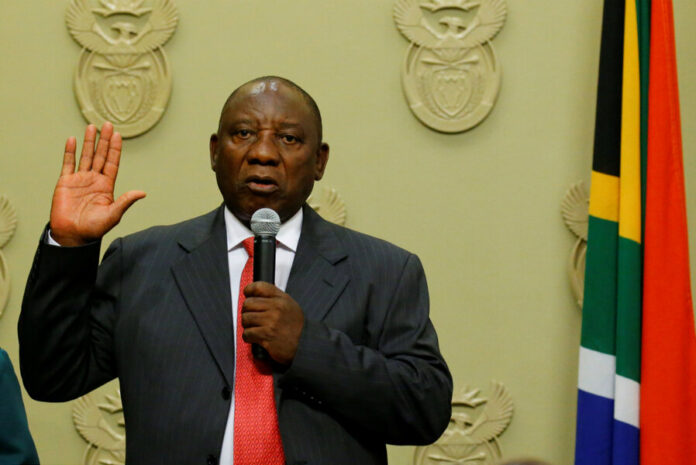Cyril Ramaphosa has been re-elected as President of South Africa, securing his second full term. However, the celebrations may be short-lived as political analysts predict that Ramaphosa's time in office could be cut short due to the intricacies of the ANC's co-governance arrangement.
The election process was not without its drama. The United Democratic Movement nominated EFF leader Julius Malema as President, prolonging the proceedings and creating a tense atmosphere within the newly minted Members of Parliament. After a long day of deliberation, Chief Justice Raymond Zondo finally announced Ramaphosa's name as the chosen candidate shortly after 11pm.
The 71-year-old president-elect is set to be inaugurated on Wednesday, June 19, in Pretoria, amidst high hopes and mounting challenges.
Ramaphosa's re-election comes with a unique set of circumstances. The ANC, under his leadership, has entered into a government of national unity with the DA, the IFP, and possibly other smaller parties. While the DA expressed a desire to work with Ramaphosa, other potential coalition partners, such as the EFF and the MK party, made it clear that they would not align themselves with the ANC if Ramaphosa remained in power.
ANC Secretary General Fikile Mbalula was quick to squash any notions of removing Ramaphosa from office, stating that it was a non-negotiable. This commitment to retaining Ramaphosa effectively limited the ANC's ability to secure the necessary support in the National Assembly, potentially impacting the longevity of his presidency.
According to the South African Constitution, presidents are not allowed to hold power for more than two full terms. Ramaphosa initially took over from his predecessor, Jacob Zuma, to complete an unfinished term, which does not count towards the two-term limit. Technically, this means that Ramaphosa could remain in power until the next general elections in 2029.
The next ANC electoral conference, scheduled for 2027, presents a significant obstacle. Unlike the presidency, there are no term limits for the ANC presidency. Therefore, Ramaphosa could potentially run for the party's top post once again. However, analysts speculate that he may choose not to pursue this option due to personal considerations and the potential backlash from the ANC's voting delegates, who may view the co-governance agreement with the DA and IFP as a betrayal of party principles.
Considering these intricate political dynamics, it is likely that Ramaphosa's second term could be cut short, leaving him with a mere three years to make a lasting impact. Historically, the ANC has not favored a situation where a candidate has been defeated for party leadership but remains as state president. However, these are unprecedented political times, and the future remains uncertain.
Ramaphosa's re-election has garnered mixed reactions within the ANC and beyond. Despite the party's dismal performance in the recent elections, internal polling suggested that Ramaphosa remained more popular with the South African public than the ANC itself. Financial indicators also reflected a sense of stability and confidence in the markets, as investors welcomed the continuity of Ramaphosa's leadership.
Nonetheless, challenges lie ahead for Ramaphosa. Criticisms from ANC structures, trade union federation Cosatu, and opposition parties, such as the Freedom Front Plus, underscore the potential obstacles he faces in maintaining unity and addressing the nation's pressing issues. The ANC's loss of parliamentary majority further complicates matters, as it exposes Ramaphosa to increased scrutiny and demands for accountability.
As Cyril Ramaphosa prepares to embark on his second presidential term, the nation watches with bated breath. Will he overcome the hurdles, navigate the complexities of the co-governance arrangement, and leave a lasting legacy? Only time will tell. For now, South Africa braces itself for uncertain political times, where alliances may shift, promises may be tested, and the fate of the nation hangs in the balance.











